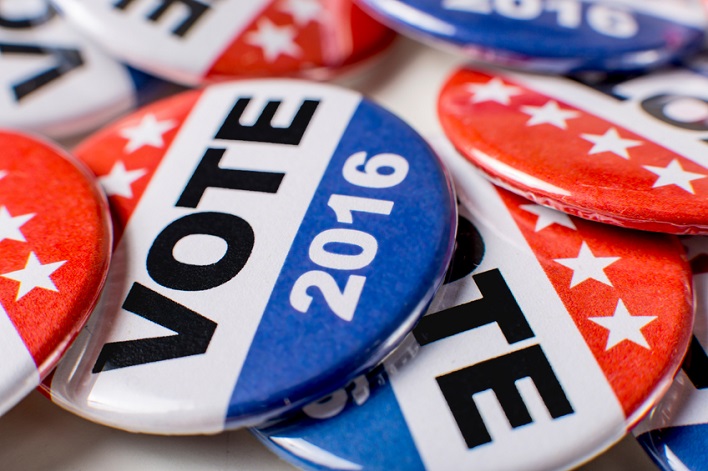Election season is in full swing. It is difficult to turn on the television or log onto social media without hearing about Campaign 2016. Politics will be a hot topic in the media and at work through the presidential election. During this time, nothing has as much potential to create dissension, disruption and arguments in the workplace as political discussions do.
To prevent these problems, here are some areas that will help employers and employees navigate the waters of politics in the workplace.
The First Amendment and Politics at Work
Many employees believe they “have a right” to speak their minds at work. This is not true for most employees. The First Amendment protects citizens against government action impeding their right to free speech. Therefore, employees of governments have some protections preventing them from being fired for some speech. However, the First Amendment has no application to a private business. Employees claiming a “constitutional” right to speak their minds about politics in the private workforce are misinformed. As a result, nongovernmental employers may generally regulate political expression as they would other forms of disruptive workplace communication. Business owners and managers may address political discussion during working time, even in the absence of potentially offensive content.
The NLRA
The National Labor Relations Act applies to all private employers, even nonunion workplaces, and, in certain circumstances, protects politically charged speech. Section 7 of the NLRA gives employees the right to engage in “concerted activities for the purpose of collective bargaining or other mutual aid or protection.” The “mutual aid or protection” provision covers not only interactions between an employer and employee, but also covers efforts by employees to “improve their lot as employees through channels outside the immediate employee-employer relationship.”
Therefore, the NLRA protects certain concerted actions by employees who are discussing changes to a workplace condition. As you can imagine, with minimum wage and immigration issues among the political hot-button topics, politics and workplace conditions often can run hand-in-hand. In fact, the National Labor Relations Board general counsel concluded that an employer may not interfere with political speech where there is a “direct nexus between employment-related concerns and the specific issues that are the subject of the advocacy.”
For example, employees are generally protected if they say, “Support Bernie Sanders because he will raise the minimum wage,” whereas other employees would not be protected if they simply said, “Support Donald Trump because he will make America great again.” Once determined to be protected activity, the NLRB then generally will look to your policies regarding employee conduct during work hours and in working areas to determine employees’ ability to engage in that activity.
Where Do We Go from Here
But what’s the harm with a little political talk in the workplace? To sum it up—potentially plenty. Because political issues can and often do stir up intense emotions, potentially divisive topics, such as race, national origin, immigration status, citizenship and religion, often end up forming the basis of political discussions. Such topics could lead to allegations of discrimination, bullying and the creation of a hostile work environment.
If your employees are spending more time on the clock discussing their candidates’ platforms than on their own work assignments, it’s time to refocus their attention. This starts with a basic education on the distinctions between free expression and prohibited conduct. Proceeding directly to formal discipline may not always be necessary, but some form of counseling is typically in order. To strike a proper balance between open dialogue and operational efficiency:
- Deal with the impact on productivity rather than the specific content of the underlying discussion.
- Monitor any subsequent exchanges, particularly in response to employee complaints.
- Strive to maintain consistency in policy application and enforcement.
Conversely, all managers should uphold a higher standard, meaning that they should avoid any implications that they are:
- Trying to advance their own political agendas.
- Belittling, denigrating or otherwise criticizing a particular party or candidate.
- Gloating over their preferred candidate’s recent success.
Finally, because the majority of states require employers to allow employees time off to vote on Election Day, some additional advance planning may be required here. Now is the time for management to prepare for the possible workplace disruption generated by Campaign 2016.

